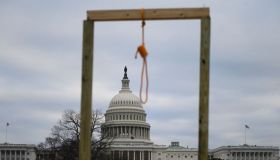As tensions were flaring up in the Middle East, Iran seemed to be fighting two wars — one against the U.S. in Iraq and another against Americans at home.
Iran shot missiles at U.S. troops in neighboring Iraq on Tuesday night as retaliation for President Donald Trump authorizing the assassination of a high-ranking Iranian military general last week. But separately it was also aiming at influencing the opinions of American citizens through a mixture of cyber warfare and good old-fashioned propaganda to spread misinformation, a tactic that has been proven to work in the U.S.
The efforts by the Iranians at trying to divide and conquer the American people was reminiscent of when the Middle Eastern country tried to do the same to Black Americans in particular just five years ago.
Most recently, the Army Times reported that multiple Americans received fake text messages purportedly from the Selective Service System, which has historically overseen military drafts.
“The texts instruct recipients to first call the sender before reporting to the nearest branch office ‘for immediate departure to Iran,” the Army Times wrote.
The U.S. Army recruiting Command quickly called those texts “fraudulent,” but not before it incited anxiety and possibly resentment against the U.S. from its recipients — something the Iranian government has vast experience doing against the American people during times of conflict.
This was true back in 2015 when Iran purportedly invited Black Americans to attend a conference on discrimination being held in the capital city of Tehran. At the time, Iran’s Supreme Leader Ayatollah Ali Khamenei compared Iranians to “black people [in the U.S. being] oppressed, disrespected and humiliated.”
The Times of Israel reported at the time that “As incidents of police violence towards African-Americans have received increased exposure and media attention in recent months, Iran has sought to capitalize on the controversy and claim moral superiority over its rivals in Washington.”
In addition to the fake texts, Iranian hackers were blamed for defacing the websites of the Texas government website veterans groups, according to a report on Tuesday from Vice News.
On the same day, Instagram deactivated an account that was “masquerading as a U.S. government news agency … used to promote misinformation about potential fallout from America’s targeted killing last week of Iran’s top general,” the Associated Press reported.
Reuters reported in 2018 how Iran spreads disinformation around the world, and the above examples fall right in line with the country’s well-documented deceptive practices.
SEE ALSO:
We Need To Talk About Those World War 3 Memes
Do Soldiers Really Want To Fight Trump’s War? Conscientious Objectors Have Choices




















